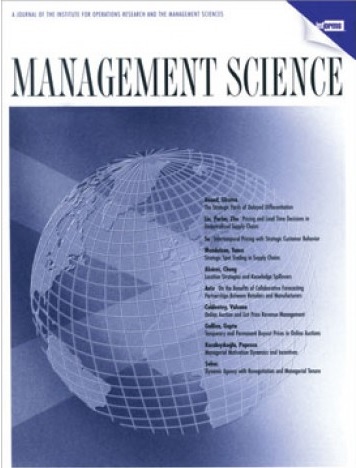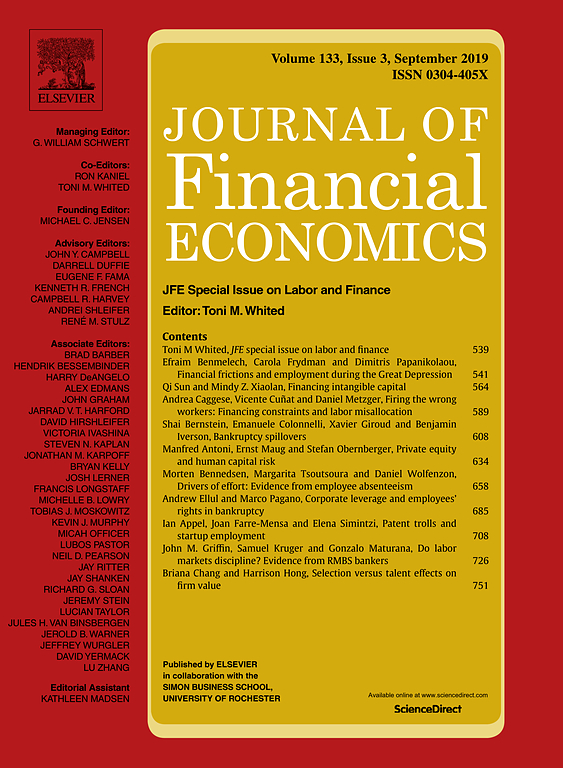Financial System Adaptability and Resilience
Financial systems differ across countries and tend to evolve slowly over time. Their structure is typically stable, but their resilience is often tested. A well-functioning financial system is vital for economic development, as it ensures that capital flows to the most productive and valuable investment opportunities. However, systemic vulnerabilities can have far-reaching consequences. For example, the 2007–08 global financial crisis emerged from within the financial sector itself when complex financial products fuelled a credit bubble in the U.S. housing market, threatening global economic stability when the bubble burst. That event led to extensive policy and regulatory reforms to strengthen financial system resilience.
Financial systems continue to face significant challenges. External shocks like the COVID-19 pandemic, the climate crisis, the green economic transition, and the energy crisis driven by geopolitical conflict all underscore the importance of financial systems that can absorb shocks and adapt to changing economic conditions. Motivated by these pressing issues, we investigate how financial systems respond to crises, which institutions and policies improve resilience, and the role of finance systems' setup in broader economic transformations. We use diverse data sources, including bank and firm-level data, regulatory reports, and house price and election data, to inform evidence-based policy.
Research Cluster
Financial Resilience and RegulationYour contact

- Department Financial Markets
EXTERNAL FUNDING
08.2022 ‐ 07.2025
OVERHANG: Debt overhang and green investments - the role of banks in climate-friendly management of emission-intensive fixed assets
The collaborative project “Debt Overhang and Green Investments” (OVERHANG) aims to investigate the role of banks in the climate-friendly management of emission-intensive fixed assets. This will identify policy-relevant insights on financial regulation, government-controlled lending and financial stability, as well as raise awareness among indebted stakeholders.
01.2015 ‐ 12.2019
Interactions between Bank-specific Risk and Macroeconomic Performance
07.2016 ‐ 12.2018
Relationship Lenders and Unorthodox Monetary Policy: Investment, Employment, and Resource Reallocation Effects
Leibniz Association
We combine a number of unique and proprietary data sources to measure the impact of relationship lenders and unconventional monetary policy during and after the European sovereign debt crisis on the real economy. Establishing systematic links between different research data centers (Forschungsdatenzentren, FDZ) and central banks with detailed micro-level information on both financial and real activity is the stand-alone proposition of our proposal. The main objective is to permit the identification of causal effects, or their absence, regarding which policies were conducive to mitigate financial shocks and stimulate real economic activities, such as employment, investment, or the closure of plants.
Refereed Publications

On the Nonexclusivity of Loan Contracts: An Empirical Investigation
in: Management Science, No. 12, 2016
Abstract
We study how a bank's willingness to lend to a previously exclusive firm changes once the firm obtains a loan from another bank ("outside loan") and breaks an exclusive relationship. Using a difference-in-difference analysis and a setting where outside loans are observable, we document that an outside loan triggers a decrease in the initial bank's willingness to lend to the firm, i.e., outside loans are strategic substitutes. Consistent with concerns about coordination problems and higher indebtedness, we find that this reaction is more pronounced the larger the outside loan and it is muted if the initial bank's existing and future loans retain seniority and are protected with valuable collateral. Our results give a benevolent role to transparency enabling banks to mitigate adverse effects from outside loans. The resulting substitute behavior may also act as a stabilizing force in credit markets limiting positive comovements between lenders, decreasing the possibility of credit freezes and financial crises.

Foreign Funding Shocks and the Lending Channel: Do Foreign Banks Adjust Differently?
in: Finance Research Letters, November 2016
Abstract
We document for a set of Latin American emerging countries that the different nature of foreign funding accessed by foreign and local banks affected their lending performance after September 2008. We show that lending growth was weaker for shock-affected foreign banks compared to shock-affected local banks. This evidence represents valuable policy information for regulators concerned with the stability and well-functioning of banking sectors.

Decision-making Power in Foreign Subsidiaries and Its Effect on Financial Constraints: An Analysis for Selected European Transition Economies on the Basis of the IWH FDI Micro Database 2013
in: Eastern European Economics, No. 6, 2016
Abstract
This article analyzes whether the distribution of decision-making power between the headquarters and foreign subsidiaries of multinational enterprises (MNEs) affects the foreign affiliates’ financial constraints. The findings show that not much decision-making power has as yet been moved from headquarters to foreign subsidiaries in European post-transition economies. The high concentration of decision-making power within the MNE’s subsidiary points toward higher financial constraints. However, a nonlinear effect is found, which suggests that financial constraints within the subsidiary only increase with more decision-making power when the power granted to the subsidiary is at a low level. For subsidiaries that already have autonomy in decision-making, granting more power in this regard has no effect on financial constraints.

Relative Peer Quality and Firm Performance
in: Journal of Financial Economics, No. 1, 2016
Abstract
We examine the performance impact of the relative quality of a Chief Executive Officer (CEO)’s compensation peers (peers to determine a CEO's overall compensation) and bonus peers (peers to determine a CEO's relative-performance-based bonus). We use the fraction of peers with greater managerial ability scores (Demerjian, Lev, and McVay, 2012) than the reporting firm to measure this CEO's relative peer quality (RPQ). We find that firms with higher RPQ earn higher stock returns and experience higher profitability growth than firms with lower RPQ. Learning among peers and the increased incentive to work harder induced by the peer-based tournament contribute to RPQ's performance effect.

Bank Recapitalization, Regulatory Intervention, and Repayment
in: Journal of Money, Credit and Banking, No. 7, 2016
Abstract
We use prudential supervisory data for all German banks during 1994–2010 to test if regulatory interventions affect the likelihood that bailed-out banks repay capital support. Accounting for the selection bias inherent in nonrandom bank bailouts by insurance schemes and the endogenous administration of regulatory interventions, we show that regulators can increase the likelihood of repayment substantially. An increase in intervention frequencies by one standard deviation increases the annual probability of capital support repayment by 7%. Sturdy interventions, like restructuring orders, are effective, whereas weak measures reduce repayment probabilities. Intervention effects last up to 5 years.
Working Papers

Corporate Governance Structures and Financial Constraints in Multinational Enterprises – An Analysis in Selected European Transition Economies on the Basis of the IWH FDI Micro Database 2013 –
in: IWH Discussion Papers, No. 3, 2015
Abstract
In our analysis, we consider the distribution of decision power over financing and investment between MNEs’ headquarters and foreign subsidiaries and its influence on the foreign affiliates’ financial restrictions. Our research results show that headquarters of multinational enterprises have not (yet) moved much decision power to their foreign subsidiaries at all. We use data from the IWH FDI Micro Database which contains information on corporate governance structures and financial restrictions of 609 enterprises with a foreign investor in Hungary, Poland, the Czech Republic, Slovakia, Romania and East Germany. We match data from Bureau van Dijk’s AMADEUS database on financial characteristics. We find that a high concentration of decision power within the MNE’s headquarter implicates high financial restrictions within the subsidiary. Square term results show, however, that the effect of financial constraints within the subsidiary decreases and finally turns insignificant when decision power moves from headquarter to subsidiary. Thus, economic policy should encourage foreign investors in the case of foreign acquisition of local enterprises to leave decision power within the enterprise and in the case of Greenfield investment to provide the newly established subsidiaries with as much power over corporate governance structures as possible.



















